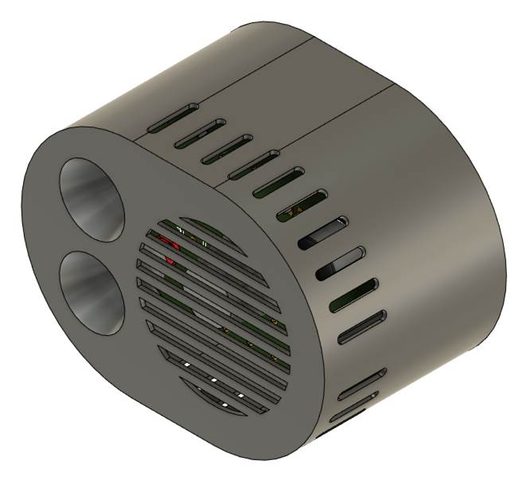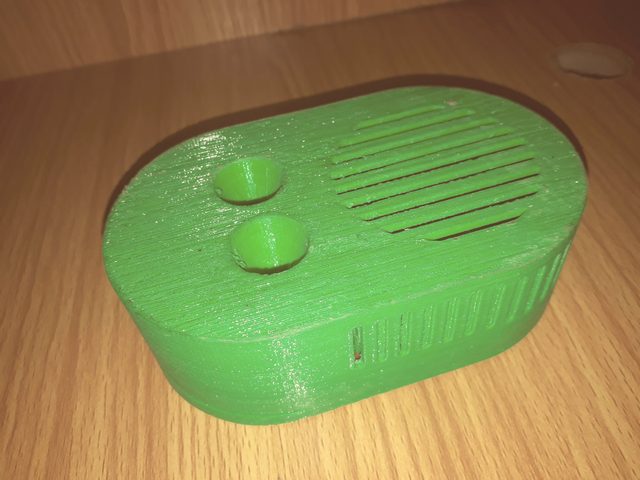Gas leakage explosions have become a concern in Nigeria, causing increasing fire outbreaks in local communities. To save lives and prevent property damage, the Youth for Technology Foundation (YTF) training program is addressing this issue under the 3D Africa program—a prototyping and engineering program within YTF that uses emerging technology like 3D printing to educate and train youth and women to design and make their own prototypes and products.
YTF, an international nonprofit organization founded in 2000 by Njideka Harry, empowers students to learn technical and entrepreneurial skills and realize their full potential. The nonprofit works to address existing educational gaps, opening access to careers in STEM and entrepreneurship. And as part of their work with YTF, engineering students are expanding their technical skills and imagining a better product development process.
Innovating for Safety

The team of young engineers—including Emmanuel Nwatu, Chijioke Azubuike, and Chimankpa Chibuzo—designed a gas monitoring device to sense leakage of the liquified petroleum gas that’s used as cooking gas in many Nigerian households. They used Autodesk Inventor to create the casing for the first prototype and Fusion 360 in later iterations to create the printed circuit board (PCB) and casing in the device. Both technologies were granted to YTF through Autodesk’s Technology Impact Program, which donates software to nonprofits and startups using design for social and environmental good.

The resulting prototype is being used in five households and proving to be a valuable tool, with the homeowners reporting that the device works perfectly; it has already helped prevent fire outbreaks, giving early warning and the opportunity to take preventive measures and avert risk.
Upskilling Engineering Students
Nwatu, Azubuike, and Chibuzo collaborated to develop a prototype with the potential to make a big impact in the local community and save lives. Emmanuel Nwatu, a 4th-year Mechanical Engineering student at Federal University of Technology, Owerri, is passionate about Computer-Aided Design and robotics and brought his knowledge in product development and proficiency in Fusion 360 to the team. Chijioke Azubuike is a 4th-year mechanical engineering student at Imo State University and strives to bridge the skill gap between university’s theoretical concepts in mechanical engineering and its practical applications. Chimankpa Chibuzo is a final-year mechanical engineering student at Federal University of Technology, Owerri, whose practical application of mechanical engineering and 3D printing helped round out the skills needed to tackle their design project.
Through the YTF program, Nwatu, Azubuike, and Chibuzo gained important skills in design, engineering, and 3D printing that also apply to their future careers. To expand on these skills, they collaborated with members of the Autodesk Foundation to revisit and redesign their original gas leakage monitoring device. Every year, the Autodesk Foundation invites employees to participate in pro bono consulting projects serving nonprofits and startups addressing social and environmental challenges.
In 2020, YTF was chosen to be a part of this project and Nwatu, Azubuike, and Chibuzo once again stepped up to the task by refining their design to be more cost-effective. “Empathy was at the core of the design process. Every step of the way, the Autodesk and YTF team considered cost, durability, and reliability. The result was a technically and environmentally sound product that is needed and uplifts people,” says Harry, YTF’s founder.
Transforming the Future
Where are the students now? Nwatu is considering pursuing a master’s degree in robotics using the skills he acquired in this program. Azubuike is hoping to specialize in product design and development and would like to become an entrepreneur after graduation. Chibuzo is working toward graduation and aiming for a job in mechanical engineering or industrial production where he can apply the skills he has gained over the year.
Odinachi Nwankwo, senior program manager in the local YTF chapter in Nigeria, puts it best. “We are changing the narrative from ‘Aid to Africa’ to ‘Made in Africa.’ We understand educational shortcomings and are trying to bridge the skill gaps in our students.”